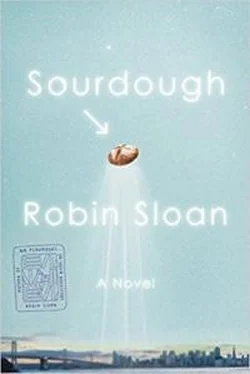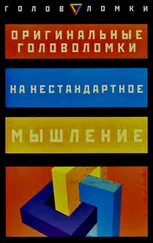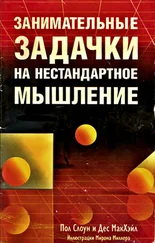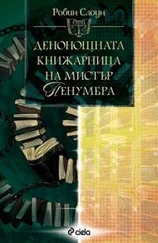The book looked very old. I didn’t want to take it.
“Oh, you must, you must!” he said. “It is an absolutely foundational document.”
I squinted at the text below the illustration. “I can’t read Latin.”
Horace sobered. “All right. I’ll keep this one. But take the rest.”
* * *
THE NEXT DAY, I rode the Omebushi from San Francisco to Alameda, used my bone-key token to enter through the bay door, loaded the master development branch of ArmOS into my refurbished Vitruvian 3, and spent the next six hours teaching it to stir.
With my fingers on its elbows, I led it through the motion. This was Task Segmentation. Whenever I paused and said, “Like that,” the Vitruvian emitted a whispering beep of acknowledgment, recording not only the motion but also its understanding of the context—what it saw through its cameras (visible and thermal) and felt through its pressure sensors. After finishing the sequence, I stepped back and spoke again. “Now you try.”
And so it came to pass that a late-model Vitruvian, loaded with the master development branch of ArmOS, reenacted all the horrors of my first attempts at baking.
Except this arm was five feet long, with strength commensurate, and every error was multiplied. It sent the bowl clanging across the concrete, leaving a powdery trail of unmixed flour.
I did, in time, teach it to stir, and so we progressed, briefly, to kneading and shaping, but then it was launching disks of dough through the air like gooey artillery. The arm was strong; they went a long way. One of the disks missed the coffee bar by inches. One of them, I never found.
For now, we would stick to stirring.
* * *
THE FLUX OF PREVIEW CUSTOMERS in the Marrow Fair when the doors opened the following Wednesday morning was immense. Had these people all been waiting out on the airfield, jostling with the goats? Between eight and nine a.m., the depot transformed from a spaceship into … a farmers market on a spaceship. The customers looked, for the most part, very rich. I saw the toothsome plaids of tech wealth, and I saw the supple leather handbags of something older.
The customers came gliding through the control tower door, none in any rush, some walking alone, others in pairs or small groups whispering among themselves. I hadn’t yet taught the Vitruvian to do anything of value, so my workstation stood quiet and dark while they passed.
Horace approached me. “Shall we wander?” he asked. “It’s always interesting to see what everyone is offering.”
There was Gracie with her Chernobyl honey; the cave-dwelling mushroom monger; a man and a woman decanting smoothies that appeared to have … things swimming inside them. Orli, the elf, presided over a table piled with cheeses, some ghostly pale, some brown like leather, and some veined not only with blue but also bright green and hot pink. The larger wheels she had carved into pieces at irregular angles, so the resulting hunks looked like soft, fat jewels.
There was a workstation selling algorithmically optimized bagels, their outsides perfectly smooth like computer renderings. A printed banner said NEWBAGEL; it was surprisingly well designed.
There was a man selling barramundi that lived their whole lives in watery tubes extending deep into the depot’s corridors. Next to him, another man cleaned those fish and fried them into tacos on the spot, filling tortillas made from cricket flour and topping them with slaw made from cabbage grown in the pink-light rooms. Horace and I requested two tacos each and agreed that the collaboration was impeccable.
We came to the cricket bakery and Horace greeted its proprietor. “Anita! This is Lois, a baker of great skill. She employs a robot.” To me, Horace said, “You must try one of Anita’s cookies.” It was light brown, threaded with darker grains. “There are cave paintings in Spain, thirty thousand years old, that depict the collection and consumption of insects.” He popped a cookie into his mouth.
When we moved on, I asked him, “So who are these customers? If one of them says, ‘Sure, Anita, I’ll take a dozen boxes of bug cookies…’?”
Horace leaned closer, clearly delighted to be conspiring. “I believe we have here representatives of many of the greatest restaurants in the world—from San Francisco, New York, London, and Tokyo. Who better to assess the market’s progress? They bring their findings to their diners. Perhaps they report back to Mr. Marrow, as well.”
We approached the lemon grove. Just ahead, a young woman held court before several of the customers. She was the one I’d seen the first night, walking the quiet concourse carrying a mug of coffee and an inward look.
“—a nutritionally complete food product,” she was saying. The stitching on her lab coat named her DR. JAINA MITRA.
The woman was passing around a platter stacked with blocks of apparently edible matter. Each was wrapped in silvery-green paper, but the matter itself was as white as a grub. The blocks resembled ghostly Rice Krispies Treats.
The customers moved along, one whispering to another. Jaina Mitra’s gaze followed them. She chewed her lip a little.
“Hello, Dr. Mitra,” Horace said. “This is Lois. She has a robot.”
Jaina Mitra said hello, her eyes still following the customers, and absently offered the platter to us.
I lifted a slab and gave it an exploratory sniff. It smelled like dirt. Not in a bad way. “You said it’s nutritionally complete. Is this anything like Slurry?”
Jaina Mitra’s gaze snapped around. “No,” she said, her face taut. “This is Lembas. It’s much better. Have you tried Slurry?”
When I told her that I had, in fact, subsisted on it, she looked surprised. “Lembas is a very different concept. I’ll explain, but please, taste it first.”
I took a bite, expecting the slippery, chemical tang that I knew from Slurry. Instead, the taste was warm and definite. The closest comparison was an immense tater tot, but it went beyond tot; in this substance, the balance of sponge to crisp was perfected.
I ate the whole piece.
Jaina Mitra smiled. “You like it?”
It tasted great, and the initial texture was top-notch, but once inside my mouth it seemed to surrender to my saliva too easily. I could feel it adhering to my molars.
“Itsh good,” I said, “but”—swallowing—“itsh a bit shticky.”
“Mmf,” Horace mumbled in agreement. He was struggling to unstick his jaws.
“That’s the new enzymes,” Jaina Mitra said darkly. “I should make a note.” She scrambled back to her workstation, typed something into her laptop, then turned back.
“Whatsh it shupposed—” I started. “Wait.” I squeegeed my teeth with my tongue. “What’s it supposed to taste like?”
Jaina Mitra’s gaze sharpened. “Nothing. It’s not intended to be a simulation. I think food should taste like what it is, don’t you? And what this is , is a super-nutritious cellulosic suspension manufactured in situ by a community of microbes.”
Jaina Mitra was, I decided, very impressive.
“It’s got all the vitamins, minerals, and macronutrients you need,” she said, “all in the right ratios. Plenty of protein. Tons of fiber. Tons. ”
Horace had regained his powers of speech. “Dr. Mitra, you are the heir to Pasteur!” he exclaimed. “Mistress of microbes. I believe Bruno Latour would be tickled by this. I have a book of his you should read…”
Jaina Mitra turned to the machine that stood behind her, occupying most of the workstation: an enormous steel cylinder with a bright, swirly logo on its breast, from which burst a tangle of pipes and cables. One large pipe connected the cylinder to a wide beige box with the plain Who, me? look that all biotech gear seemed to share.
Читать дальше










